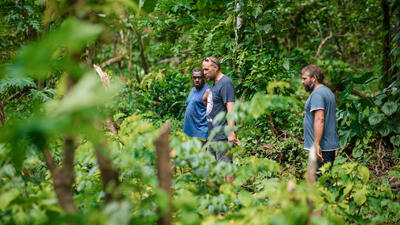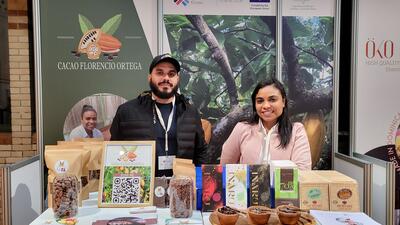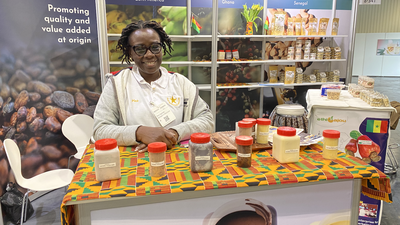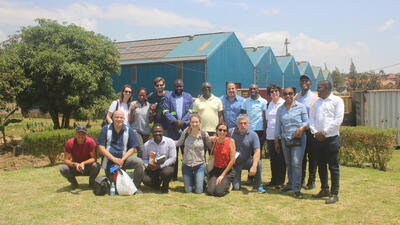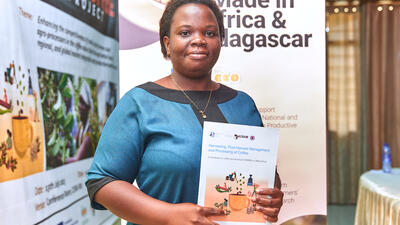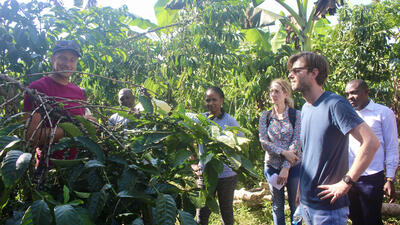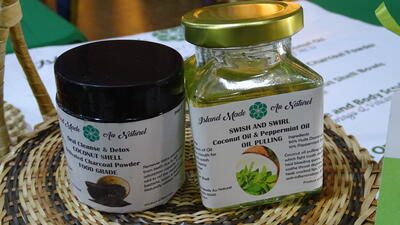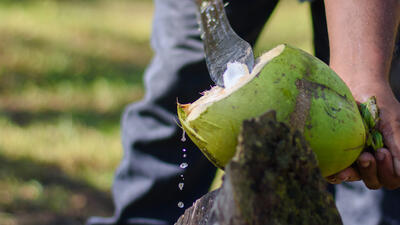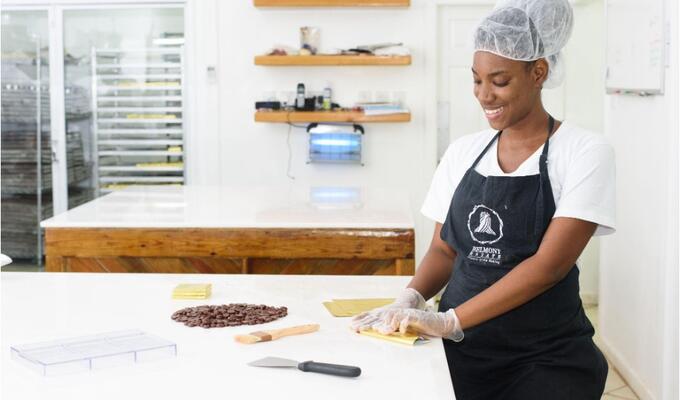
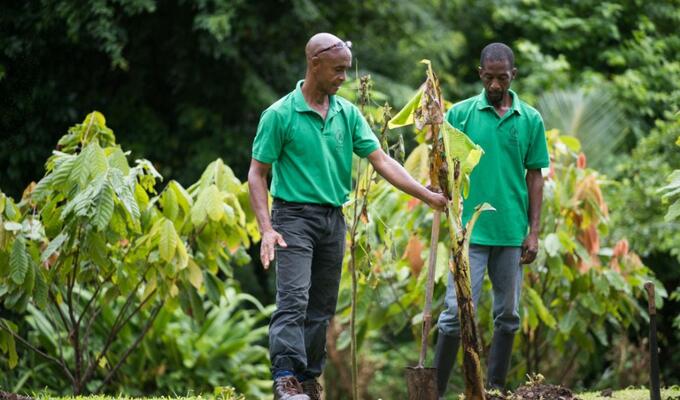
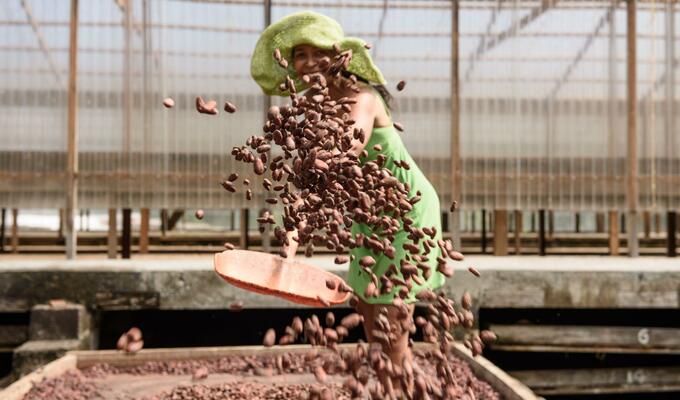
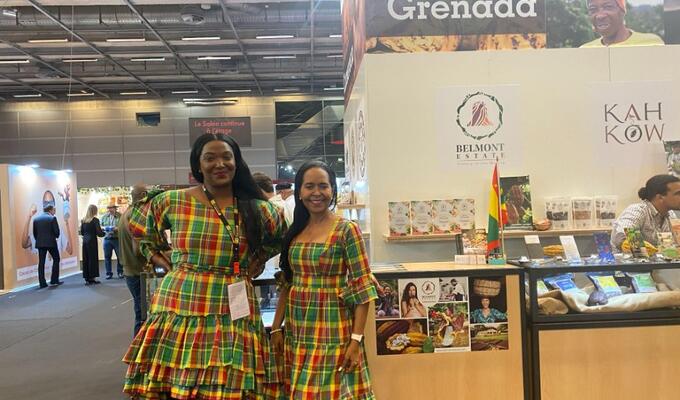
Shadel Nyack Compton wants Grenada’s cocoa heritage to get the credit it deserves
Shadel Nyack Compton and her agritourism project Belmont Estate focuses on cocoa, chocolate, sustainability, and Grenadian cultural and culinary heritage.
Grenada, known as the ‘Spice Isle,’ also boasts a rich cocoa heritage dating back to the 17th century, when cocoa plantations were established on the island. Today, Grenada's cocoa scene is characterized by its high-quality, organic cocoa beans, traditional farming practices, and a strong emphasis on sustainable production.
Nestled in the north-east of the Caribbean Island, Belmont Estate is a celebration of all this. The historic cocoa and sugarcane plantation established under colonial rule in the late 1600s is now a dynamic immersive agrotourism project that seeks to empower local communities and celebrate Grenadian cultural heritage.
Belmont Estate’s transformation to agritourism was the brainchild of Shadel Nyack Compton, co-owner of Belmont, in 2002. She wanted to turn the estate into an organic farm encompassing healthy goat dairy production, tree-to-bar chocolate making, local cuisine, and historical and cultural resources. The 300-acre farm spans forest, trees, cocoa, spices, fruits and vegetables, and has collected awards over the years.
A celebration of culinary heritage
Shadel is writing a coffee table book about Grenada’s tree-to-bar cacao journey that will feature farmers and chocolate makers and look at how cacao and tourism have affected Grenada’s economy. It will explore the island’s recipes, fashion, music, and art and look at how cacao permeates local culture.
Cocoa has been a cornerstone of Grenada's agricultural heritage for centuries. The island celebrates its cocoa culture through various festivals and events dedicated to showcasing its cocoa heritage.
‘In Grenada, we make a lot of chocolate with our spices because spices are prolific in Grenada,’ says Shadel. ‘This year we celebrated our 50th anniversary of independence and made a collection of heritage bars that represent the different ethnicities that make us Grenadian, to offer a true reflection of our people. Our Indigenous Peoples Heritage bar, for example, was a 45% white chocolate bar flavored with annatto – a red seed used by the Indigenous Peoples as a body and food coloring – cayenne pepper, and sea salt. The heritage line was well received and will eventually form part of our main line of chocolates.’
Combining local stewardship and a global business model
Belmont Estate went to the Salon du Chocolat in Paris with ITC in 2022 and 2023, along with cohorts from other countries under the ACP Business-Friendly and NTFV programmes. The event was a catalyst for many new opportunities for her.
The latest trip included an industry tour of some of Paris’ most prominent chocolatiers, including world-famous Kozak, who expressed interest in Belmont Estate’s chocolates and ‘cocoa balls.’ The owner of the shop also connected Shadel with Chloé Doutre-Roussel, previously the chocolate buyer at Fortnum & Mason in London and now a consultant, whom Shadel ended up hiring to develop her brand.
‘She came here and trained a total of 20 staff in different areas, with a focus on fermentation and drying,’ says Shadel. ‘She advised us to specialize in chocolate making and bonbons and helped us adjust our fermentation practices. We invested in this consultancy ourselves and feel like it was completely worth it.’
Shadel explains that local ingredients resonate well with the local and tourist markets, but that Paris was a learning experience in the sense that she understood the international crowd had an overall more conservative taste for chocolate. ‘We have made a yellow bar with turmeric, coconut milk and ginger for example. But for international markets we use milder favors,’ she says.
Another partnership formed thanks to this trip was with Martin Christy, expert, educator and consultant of fine chocolate and cacao. Since then, he and Shadel have hosted chocolate tasting classes together at Belmont Estate, in collaboration with the International Institute of Chocolate and Cacao Tasting, involving participants from Grenada, St. Lucia, Puerto Rico, and other Caribbean states. This has helped improve chocolate makers’ skills throughout the region.
Belmont Estate’s business model is to continue to promote local heritage to Grenadian and Caribbean audiences, and to adapt a strategy for EU and US markets. Shadel also wants to tap into the Caribbean diaspora connected to Grenada and the health and organic markets. She is excited about the future and prepared to invest time and effort into her already successful operation.
About the projects
The ACP Business-Friendly programme is funded by the European Union and the Organisation of African, Caribbean and Pacific States (OACPS) and jointly implemented by ITC’s Alliances for Action, the World Bank and UNIDO. It seeks to improve the ability of agribusiness firms in ACP countries to compete, grow and prosper in domestic, regional and international markets. Through the Alliances for Action approach, it promotes inclusive and sustainable agricultural value chains that value all stakeholders from farm to shelf.





